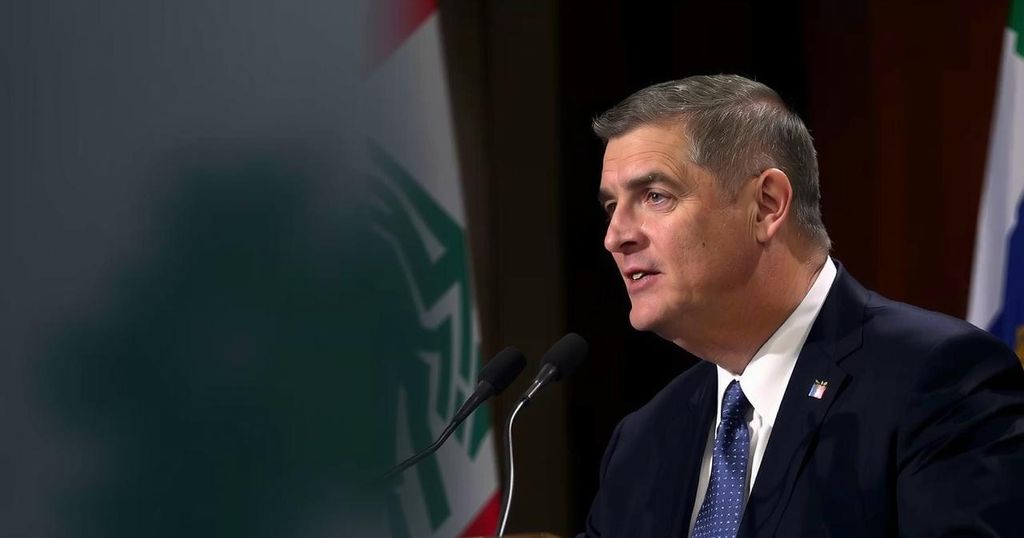U.S. Ambassador Lisa Johnson is advocating for an internal uprising in Lebanon to weaken Hezbollah amid the conflict with Israel. She encourages Lebanese politicians to rally against Hezbollah and supports the election of General Joseph Aoun for the presidency. Johnson’s initiative includes inciting sectarian tensions and leveraging international support to dismantle Hezbollah’s influence.
Recent reports indicate that U.S. Ambassador to Lebanon, Lisa Johnson, is actively promoting a strategy aimed at fostering an “internal uprising” within Lebanon to counter the influence of Hezbollah amidst ongoing military conflicts with Israel. According to a high-ranking Lebanese security source, Johnson has been engaging with local politicians, urging them to initiate a movement named “Enough” to galvanize the populace away from Hezbollah’s control, citing favorable regional and international conditions. Ambassador Johnson allegedly expressed the view that Israel cannot solely rely on warfare to achieve its objectives. She emphasized that Lebanese citizens have a crucial role to play in dismantling Hezbollah’s dominance and returning to the political landscape reminiscent of the period following the assassination of Rafik Hariri. During her discussions, Johnson posed questions to politicians regarding their perceived timidity, claiming that Hezbollah is already weakened and that the U.S. and global allies support their potential uprising. Moreover, Johnson highlighted her endorsement of General Joseph Aoun, the Commander of the Lebanese Armed Forces, for the presidency, asserting that he would fortify the military’s resolve against Hezbollah affiliates with backing from Arab nations and Western powers. The ambassador’s strategy reportedly includes inflammatory tactics to incite sectarian tensions, particularly targeting areas hosting displaced Shia populations who fled due to Israeli military actions. The ongoing Lebanese societal context is marked by its multi-confessional and multi-national demographic structure, which has historically rendered it vulnerable to external interference and internal division. Johnson’s initiatives appear to aim not only at diminishing Hezbollah’s political and military clout but also at exploiting the current warfare environment to dismantle underlying support systems associated with Iran, a key ally of Hezbollah.
This article discusses the complicated geopolitical situation in Lebanon, particularly focusing on U.S. involvement and its implications for the region. Lebanon is known for its diverse religious and ethnic communities, which contributes to its susceptibility to civil unrest and foreign manipulation. The historical context of Lebanon’s civil wars (1975-1990) underscores the volatility of its society, marked by deep-seated sectarian divides. The current military actions involving Israel and Hezbollah present an environment where external influences strive to reshape Lebanon’s political landscape in their favor, specifically aiming to curtail Iranian influence and instigate internal dissent against dominant factions.
In conclusion, U.S. Ambassador Lisa Johnson’s reported actions exemplify a strategic push to destabilize Hezbollah’s presence in Lebanon through internal mobilization, urging political figures and the community to initiate uprisings. By supporting General Joseph Aoun and inciting sectarian tensions, the Ambassador aims to realign Lebanon’s political framework while simultaneously targeting Iranian influence in the region. These developments indicate a significant shift in U.S. foreign policy tactics within Lebanon, emphasizing the importance of internal dynamics in the ongoing conflict with Hezbollah.
Original Source: mronline.org






